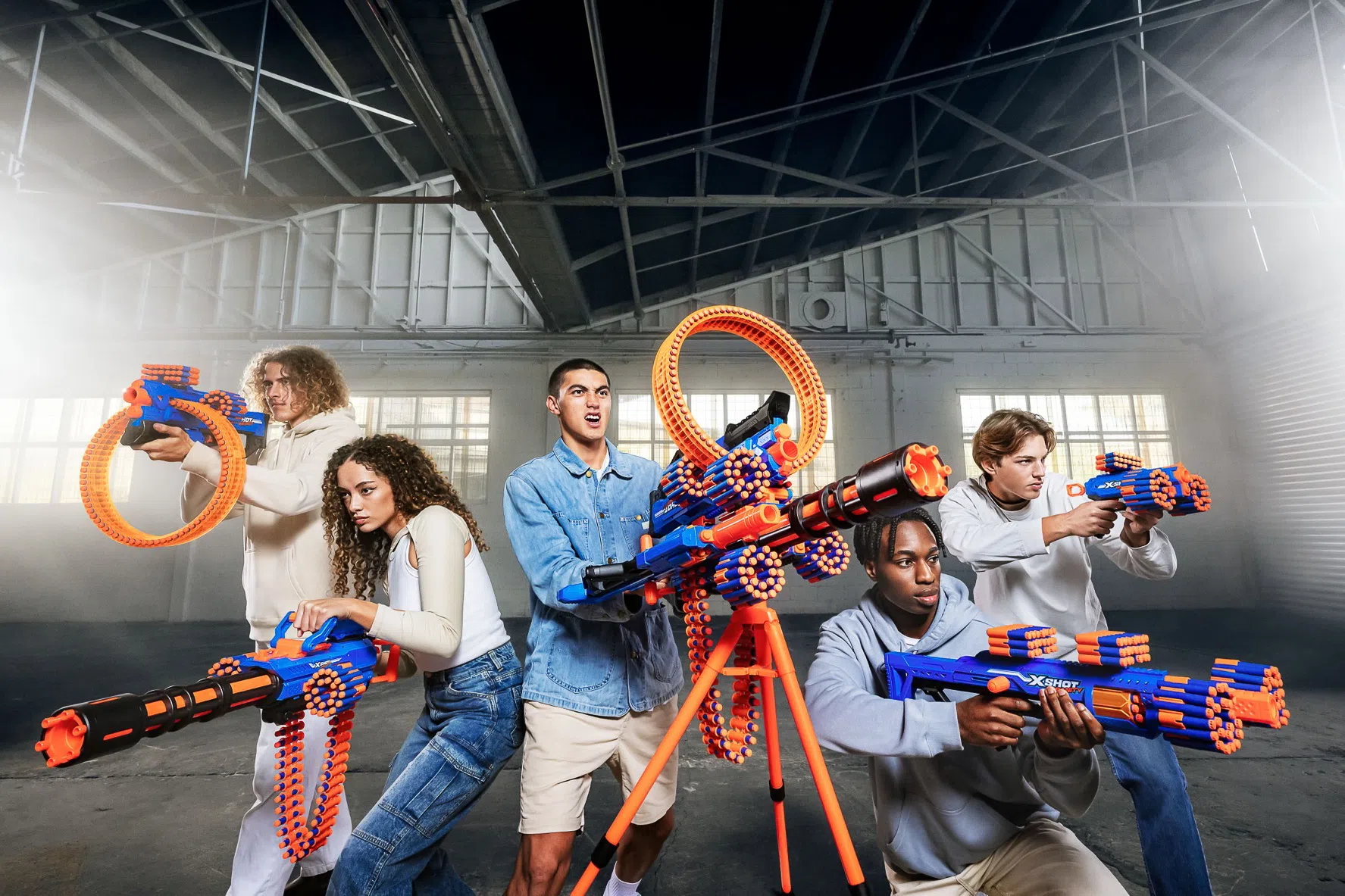Billionaire brothers turn US$12,000 loan into empire of cheap toys
AT 18, Nick Mowbray dropped out of college in his native New Zealand and moved to China with his older brother, Mat. The pair spoke no Chinese, had few contacts and little business experience.
But they had an idea: open a factory near Guangzhou, a fast-growing port city in the country’s south, where they would make toys. With a NZ$20,000 (S$15,371) loan from their parents, they bought an injection moulding machine and got to work.
“We lived on like a dollar a day,” the younger Mowbray, co-founder of what is now the Zuru Group, said. “We ate just rice and vegetables.”
More than two decades and several factories later, Zuru has grown into an off-price toy heavyweight. Its plastic dart “blasters” compete with Hasbro’s Nerf on the shelves of Walmart and Target. A range of blind box collectibles – small-dollar toys with unknown prizes inside – generate repeat customers. Water balloon kits promise easy, affordable fun for hot summer days.
The success has turned Nick and Mat Mowbray into billionaires, according to the Bloomberg Billionaires Index. And their fortune may soon swell.
Zuru’s revenue is projected to hit NZ$3 billion in 2024, and the company expects annual growth of as much as 30 per cent. Toys account for two-thirds of sales, with the rest coming from emerging bets on other consumer goods.
BT in your inbox
Start and end each day with the latest news stories and analyses delivered straight to your inbox.
Stale categories
Zuru’s strategy rests on finding stale consumer goods categories, especially ones dominated by a small number of players, and elbowing its way in. In toys, that has meant taking on incumbents such as Mattel and Hasbro. Zuru then uses a low-cost supply chain – it makes everything in China and owns all of its factories – to undercut competitors on price.
The tactic has, so far, been a winner.
“Their playbook is really that you can make a lesser quality toy, much cheaper,” said UBS analyst Arpine Kocharyan. “That playbook has worked very well for them – they have grown exponentially.”
The manoeuvre has also drawn criticism from rivals. Lego, for example, sued Zuru for infringing its trademark by saying its own plastic brick toys are compatible with sets from the better-known competitor. Lego won the initial hearing. Zuru appealed and the case is still winding its way through New Zealand courts.
Zuru, headquartered in Hong Kong, now employs more than 5,000 in over 30 global locations. The company set it sights beyond toys six years ago and expanded into products such as shampoo and dog food. Its diaper brands – Millie Moon and Rascals – are fighting for market share with the likes of Kimberly-Clark’s Huggies and Procter & Gamble’s Pampers. The expansion is possible, Nick Mowbray said, thanks to Zuru’s tight supply-chain control and focus on automation.
But that strength could become its biggest weakness in a hurry. Most of the company’s sales come from the US, where president-elect Donald Trump has pledged tariffs on Chinese goods. He has also vowed to impose an additional duty if Beijing does not help stem the flow of fentanyl across the country’s southern border.
“Obviously tariffs do not benefit us,” 39-year-old Nick, who lives with his wife in a mansion outside of Auckland, said. “But China’s supply chain is still unbeatable, even with tariffs. We cannot beat it for efficiency.”
He has stuck with the country through crisis before. When Covid-19 struck and businesses rushed for the exits, Zuru exploited a weak renminbi to buy up factories at big discounts. Labour and talent became plentiful. It was “the greatest thing for us”, he said.
“We just decided to double and triple down on China,” Nick said.
Early days
Back in the late 1990s, the elder Mowbray fashioned a miniature hot-air balloon from a soda can and a plastic bag, a feat that earned first place in New Zealand’s national science fair. With their father’s help, Mat and Nick parlayed the crude children’s toy into a small business. The duo made duplicates at home, stuffing cans with methylated spirits and cotton balls.
“We’d make them in the garage at home and then sell them door-to-door,” Nick said. “We’d fly these basically burning plastic bags.”
Their parents later let them set up a basic factory in the barn on their dairy farm in Tokoroa, a rural town near the centre of New Zealand’s North Island. In exchange, the pair sprayed weeds and milked cows once a week.
Mat was the first to drop out of university to concentrate on the business. Nick soon followed. They slept at work – Mat at the factory, and Nick in their Hong Kong showroom – but slowly won contracts. Their sister, Anna, eventually joined the pair in Asia. (She was recently bought out for an undisclosed sum.)
Future IPO?
The company has since grown organically, with its founders declining to borrow anything after the start-up loan from their parents. Lately, however, discussion of an initial public offering (IPO) has picked up.
The reason? A bet too big for organic growth, according to Nick. Zuru is attempting to fully automate home production in a bid to offer cheap housing around the world. It bought a 10 hectare factory in China, is building test homes and plans to ship to Los Angeles next year. Once they prove the concept, Zuru will want to scale the project so quickly it will need outside capital, he said.
The backbone of the bet is a software called DreamCatcher, which allows customers to design homes that are then translated into precise instructions for an automated factory. The software is so simple “even a 10-year-old” could use it, Nick said.
“Ultimately I think what we are doing with this housing project is going to dwarf everything we have ever done,” he said. BLOOMBERG

